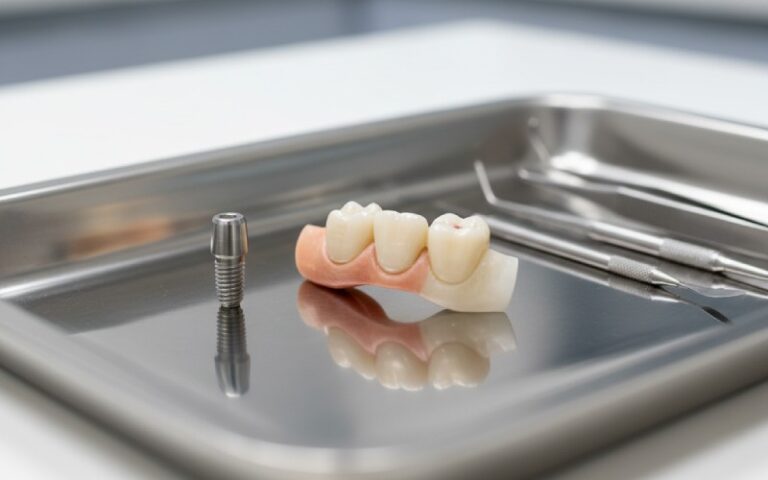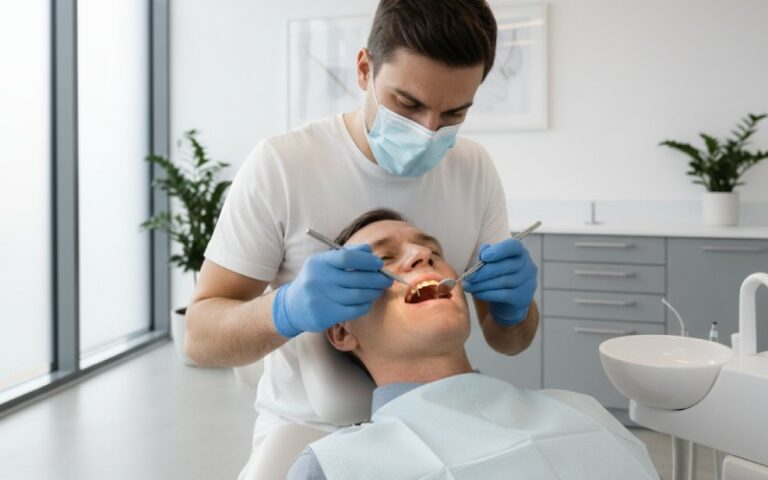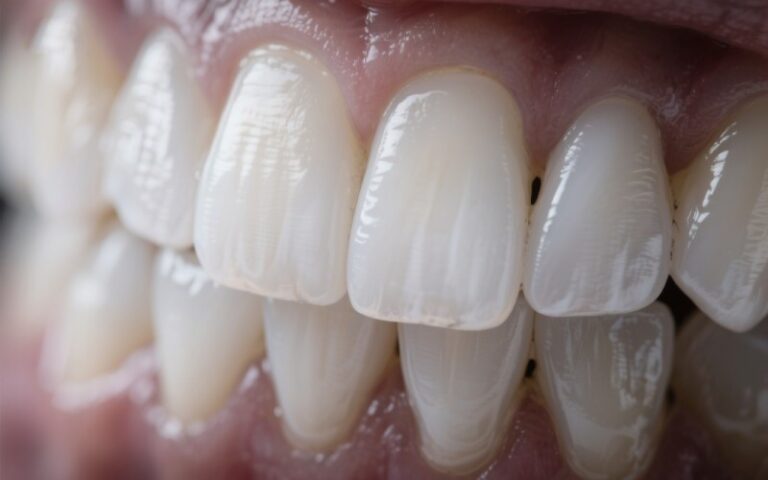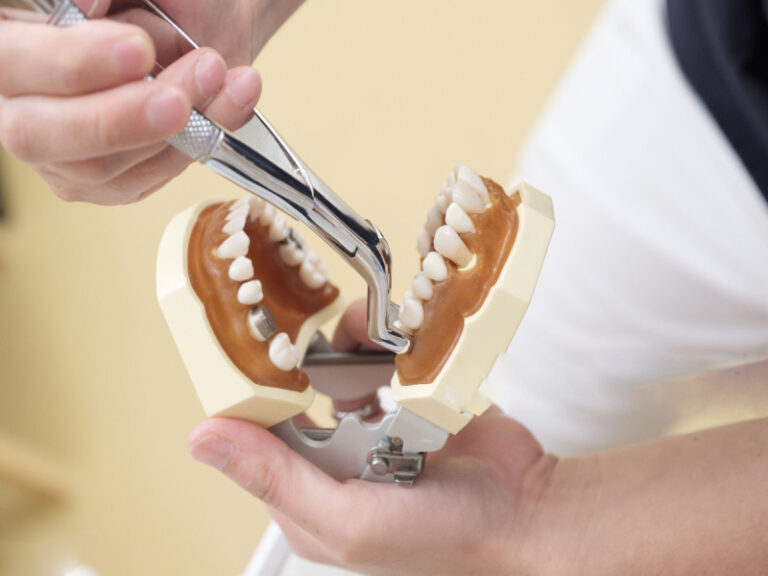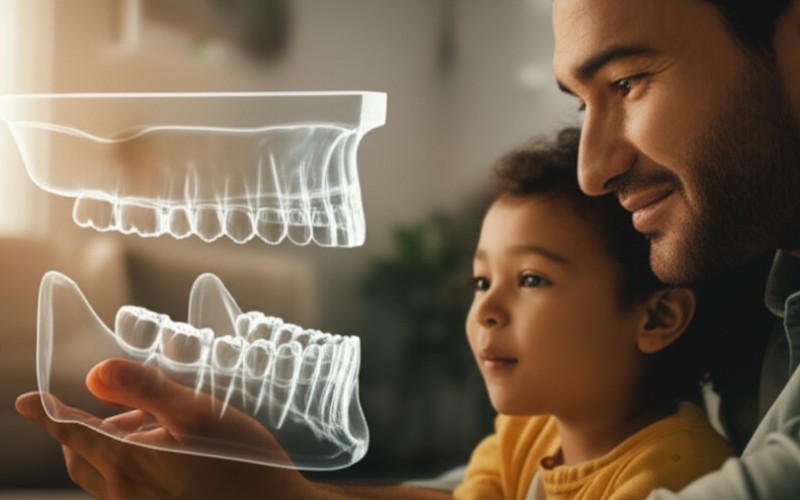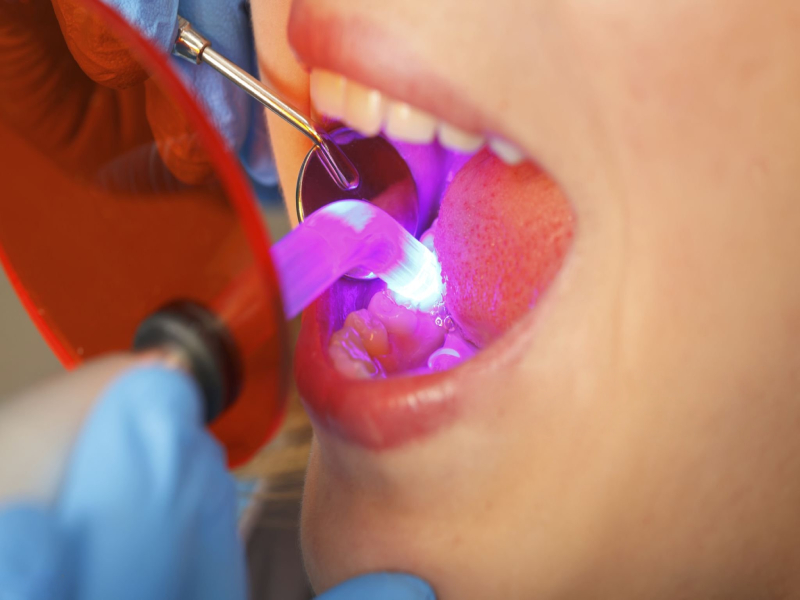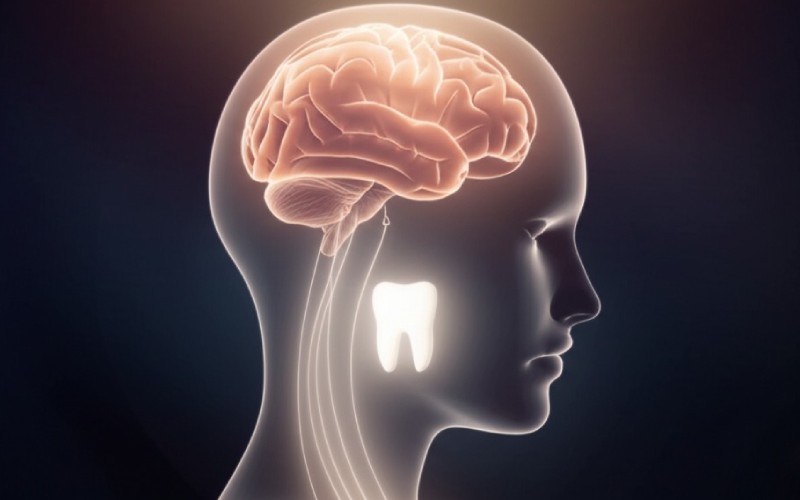
The Surprising Health Connection: How Your Mental Health and Dental Health Are Connected
The therapist’s office and the dentist’s chair are more closely linked than you ever imagined. This article explores the powerful link between dental health and mental health. We’ll look at how your emotional well-being can directly impact the health of your teeth and gums, and how your dental health can, in turn, affect your mental health. It’s a two-way street, and understanding this health connection is the first step toward better overall health.
Съдържание
Защо връзката между оралното здраве и цялостното ви здраве е толкова важна?
You may see your dental check-ups as just that: a time to check your teeth. You probably never once thought about how your stress levels or your mood are connected to what your dentist saw in yourt= mouth. But the truth is, your mouth is a window into your overall health. The relationship between oral health and your general well-being is incredibly strong. Think about it. Your body is one system. It doesn’t separate your mind from your mouth.
When we talk about health issues, we need to look at the whole person. Ignoring your dental health is like ignoring a warning light on your car’s dashboard. It can signal deeper problems. Good oral hygiene is more than just about having a nice smile. It’s a key part of maintaining good physical and mental health. Understanding this connection is the first step to taking better care of yourself in a more complete way. The associations between mental health and your oral health are clear.
How can poor mental health lead to dental health issues?
So, how exactly does your mind affect your mouth? It happens in a few ways. When someone is struggling with their mental health, self-care is often the first thing to go. Simple tasks like brushing your teeth can feel like climbing a mountain. This neglect can quickly lead to problems like tooth decay and gum disease. A person with poor mental health might not have the energy or motivation to keep up with daily oral hygiene.
Another big factor is the side effects of medications. Many drugs used to treat mental health conditions, such as antidepressants, can cause dry mouth. Saliva is your mouth’s natural defense. It washes away food and fights germs. Without enough of it, your risk for cavities and other dental problems goes way up. Stress itself, a common part of many mental health issues, can lead to teeth grinding. This can wear down a tooth and cause pain. These are real, physical health problems that start with your mental health.
Can a sore tooth or poor dental health affect your mental health?
A bad toothache can make you miserable. It is hard to eat, hard to sleep, and hard to focus on anything else. Constant pain is a major source of stress and anxiety. If you’re dealing with poor oral health, like a missing tooth or painful gums, it can seriously damage your self-esteem. You might avoid smiling or talking to people. This can lead to social isolation, which can make feelings of sadness or anxiety even worse.
Living with chronic dental pain or being embarrassed by your teeth can truly exacerbate mental health struggles. It’s a vicious cycle. Your mental health suffers, so your dental care slips. Then, your poor dental health makes you feel even worse emotionally. This connection between oral health and mental health shows how one problem can feed the other, making both harder to manage. The state of your oral health-related quality of life is very important.

What is the specific link between depression and anxiety and dental problems?
Depression and anxiety are two of the most common mental health challenges, and they have a very direct impact on dental health. As I mentioned, the lack of motivation that comes with depression makes daily brushing and flossing feel impossible. Studies show that people with depression often have higher rates of tooth decay and even tooth loss. They are also less likely to seek out regular dental care.
For those with anxiety, a different set of problems can arise. Dental fear and anxiety are very real. The thought of a dental visit can be terrifying, causing people to avoid the dentist for years, even when they are in pain. This avoidance means small problems, like a tiny cavity in a tooth, can turn into big, expensive ones. The stress associated with anxiety can also lead to that teeth grinding I talked about, and even canker sores. These health conditions show how our mental and emotional health is tied to our mouth.
Why is it hard to get dental care when you have mental health problems?
Getting help for any health problem can be tough. But when you add mental health problems to the mix, getting dental care becomes even more difficult. One of the biggest hurdles is simply the lack of energy. Making an appointment, arranging transportation, and sitting through a dental treatment requires a lot of effort that someone with poor mental health may not have. The cost is another huge barrier. Many people, especially individuals without dental insurance, simply can’t afford it.
There’s also the issue of fear and stigma. Someone with a serious mental illness might worry about being judged by health professionals. They might feel anxious about the sounds and feelings of a dental office. This makes the use of oral health services very low for this group. Improving care utilization means we need to create a more supportive and understanding environment in dental clinics. We must promote oral health utilization by individuals with these struggles.
What does research show about the connection between mental health and dental health?
The CareQuest Institute for Oral Health has done important work on this. Their 2022 State of Oral Health report highlights these links. A key study, the State of Oral Health Equity in America survey, found that adults who rated their mental health as fair or poor were almost twice as likely to also rate their oral health as poor. This shows a strong association between poor mental health and a poor oral health status.
The findings are consistent across many studies. Research published in journals like Frontiers in Oral Health and by organizations like the National Institutes of Health all point to the same conclusion. People with mental health issues are more likely to have a higher number of decayed, missing, or filled teeth. The Health Equity in America survey showed that respondents with good mental health had much better oral health outcomes. The evidence for the mental health and oral health connection is undeniable.
How does your socioeconomic status affect your mental and dental health?
We can’t talk about health without talking about life circumstances. Your socioeconomic status plays a huge role in both your mental health and your dental health. People with lower incomes often face more stress, which can lead to mental health challenges. At the same time, they are less likely to have dental insurance or be able to afford a dental visit. This creates a perfect storm for both mental and oral health problems.
These factors are part of what experts call the social determinants of health. It includes things like your income, your education, and where you live. These things can limit your access to healthy food, safe housing, and good health services. Improving the state of oral health equity in our country means we have to address these root causes. We can’t expect people to have a healthy tooth if they can’t afford to see a dentist or buy healthy food. It is a key factor in the oral health equity in America discussion.
What can health professionals do to help with both mental and dental issues?
So, what’s the solution? A big part of it lies with our health professionals. We need more collaboration. Your family doctor, your therapist, and your dentist should be talking to each other. A dentist who notices signs of severe teeth grinding or neglect might be the first person to spot a potential mental health issue. They can gently suggest that the patient talk to a doctor or a mental health professional. The concept of behavioral health needs to be integrated into the dental office.
Likewise, mental health professionals can play a role. They can talk to their patients about the importance of self-care, including oral health care. They can help patients overcome dental anxiety and encourage them to schedule a needed dental visit. Resources like the Smiles for Life National Oral Health curriculum help train non-dental providers to understand these issues. When a patient reports oral health symptoms, it should be taken seriously as a sign of their mental and overall health. The goal is care that will promote oral well-being.
How can you improve your own mental health and oral health connection?
Okay, let’s bring this back to you. What can you do, starting today? The first step is to be kind to yourself. If you are struggling with your mental health, acknowledge that it’s okay if you’ve let your oral hygiene slip. Don’t beat yourself up. Just try to start small. Maybe that means just brushing one tooth today. Tomorrow, maybe you can brush for a full minute. Small steps add up.
Talk to your dentist about your mental health. If you have anxiety or are taking medications that cause dry mouth, let them know. They can help you come up with a plan. Maybe that means using special toothpaste or scheduling shorter, less stressful appointments. Taking care of your mental and oral health is a journey. The goal is to improve your health and oral health status together, because mental health are connected to every part of your body.

What is the future of care for oral and mental health?
I’m hopeful about the future. More and more, the healthcare world is recognizing the powerful connection between oral health and mental health. The future is integrated care. This means clinics where you can see a doctor, a dentist, and a therapist all in the same building. This approach makes it easier for patients and helps professionals work as a team. The National Institute of Mental Health and other groups are funding research to evaluate the relationship between oral and mental wellness.
We are also seeing a bigger push for oral health equity in America. This means working to make sure everyone has access to affordable, quality dental care, no matter their income or where they live. As we improve access to both dental services and mental health services, we will see the overall health of our communities improve. The oral health problem is a mental health problem, and we need to treat it that way. The future is about looking at the complete picture of a person’s well-being.
Key Takeaways to Remember
- Your mental health and dental health are deeply connected. One affects the other.
- Poor mental health can lead to neglect of oral hygiene, dry mouth from medications, and teeth grinding from stress.
- Poor oral health, such as pain or missing teeth, can worsen your mental health by causing stress, anxiety, and low self-esteem.
- People with mental health conditions like depression are more likely to experience tooth decay and tooth loss.
- Barriers like cost, fear, and lack of energy make it hard for individuals with mental illness to get the dental care they need.
- Improving this connection requires a team approach, with doctors, dentists, and mental health professionals working together.
- Start small with your own self-care. Be open with your dentist about your mental health to get the best care for your unique situation.

